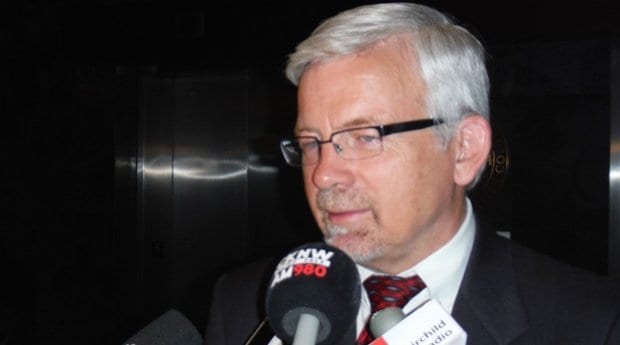The directors of the Law Society of British Columbia voted 25 to one on Oct 31 to deny accreditation to Trinity Western University’s (TWU) law school.
At the centre of the controversy that has played out at the law society for much of the past year is TWU’s community covenant. For admission to TWU, students must sign the covenant agreeing to uphold Christian biblical teachings, including no premarital sex and no homosexuality. Failure to uphold these commitments, according to the student handbook, could result in discipline, dismissal or a refusal to readmit a student to the university.
The vote came the day after the society released the results of a binding referendum of the province’s 13,530 practising, non-practising and retired lawyers. That vote was 74 percent against the school being approved.
“The university is disappointed with this vote,” TWU spokesperson Guy Saffold said Oct 30. “Trinity Western believes in diversity and the rights of all Canadians to their personal beliefs and values. A person’s ability to study and practise the law should not be restricted by their faith.”
Lawyer barbara findlay tells Xtra the Oct 31 directors’ vote was no surprise, as they had already voted to be bound by the referendum result. “I am overjoyed at the commitment of the legal profession to the pursuit of equality and their willingness to insist to the benchers that the benchers live up to their leadership obligations,” Findlay says.
The law society directors — known as benchers — had initially agreed to accredit the graduates in April, but a membership petition forced a special general meeting in June to reconsider the matter. At that meeting, lawyers overwhelmingly urged the society’s board of directors to rescind its earlier approval and vote again.
The board’s approval in April was based largely on a 2001 Supreme Court of Canada decision that upheld TWU’s right to teach Christian values and to insist that its students sign their community covenant. While many law society board members expressed their distaste for the covenant, they said their hands were tied by the existing 2001 legal decision. Attendees at the June 10 special general meeting disagreed, saying the law society is responsible for setting the legal course in BC.
TWU president Bob Kuhn was present for the Oct 31 vote, which he called “disappointing.” “It’s a very serious matter and, from our perspective, a huge discussion to face the decision that was formerly made based on the principles of law and now is based on the popularity of the covenant,” he says. He called it a “sad day for religious freedom and the rule of law.”
Kuhn says TWU could opt to seek a judicial review of the law society decision through the province’s courts, but he says that, in any event, the situation is headed for the Supreme Court of Canada. And findlay agrees.
She says the university could have a good court case in arguing that the society “fettered its discretion” in deciding what it would do with the referendum results before the result arrived. “They are bound to observe the rules of natural justice, and one of those rules is not to fetter that discretion,” she says. “TWU in my opinion has a good argument.”
“I am confident that court will take judicial notice of the views of the profession in the votes that have been held,” she says.
After the directors’ vote took place, the law society’s second vice-president, David Crossin, extended an invitation to Kuhn to keep discussions regarding the school alive. “The voice of our members is to be regarded,” Crossin said. “I invite you to continue to meet and to continue a dialogue with this institution.” However, he added, “I just don’t believe that we can’t address this covenant in a way that allows for the embracing of all of us that at the same time does not compromise your firmly held beliefs.”
The status of the school in provinces across Canada remains in flux as BC lawyers aren’t the only ones to reject their own society’s approval.
New Brunswick lawyers on Sept 13 voted 137 to 30 to overturn their law society’s earlier approval of TWUs proposed law school. Before the reversal, New Brunswick’s law society had green-lighted TWU’s proposal June 27 in a 14 to five vote, following the lead of Canada’s Federation of Law Societies.
At the Sept 26, 2014, meeting of the New Brunswick society, the governing council decided to obtain a legal opinion as to the procedure they will follow with respect to dealing with the resolution, deputy executive director Shirley MacLean tells Xtra. The council also met on Oct 29 to discuss procedure and what material should be obtained for council members to consider. The council is expected to reconsider the application in January, MacLean says.
The federation examined only whether the proposed law school’s graduates could meet national professional requirements for knowledge and competencies needed for entry to the bar admission programs in the Canadian common-law jurisdictions. It didn’t rule on the school’s covenant.
Elsewhere in Canada, Alberta and Saskatchewan have decided to accept TWU graduates, while Ontario and Nova Scotia refused.
TWU is suing Ontario and Nova Scotia for their refusals, while a gay plaintiff in BC is suing the provincial government for its approval of TWU, saying the proposed school will discriminate against people based on sexual orientation and religious grounds.

 Why you can trust Xtra
Why you can trust Xtra


